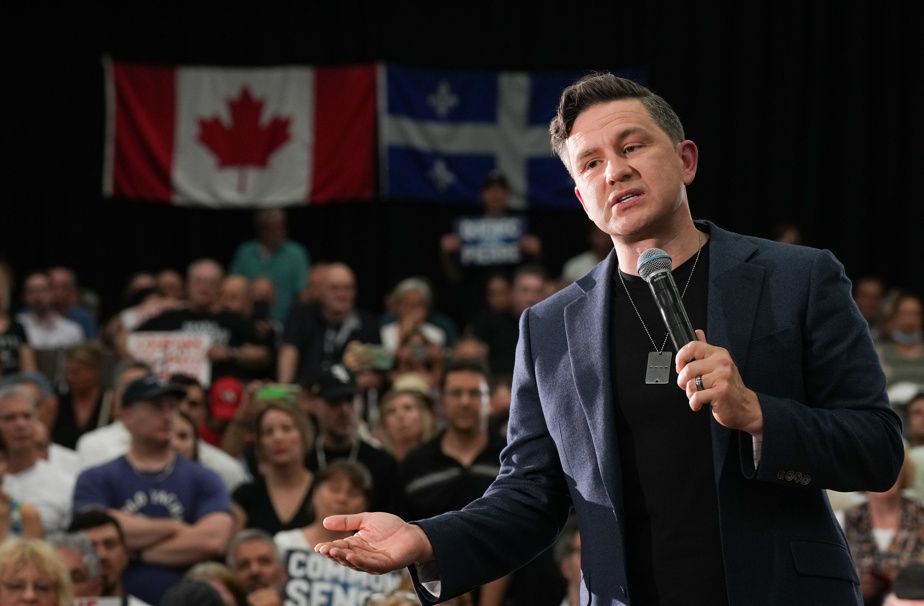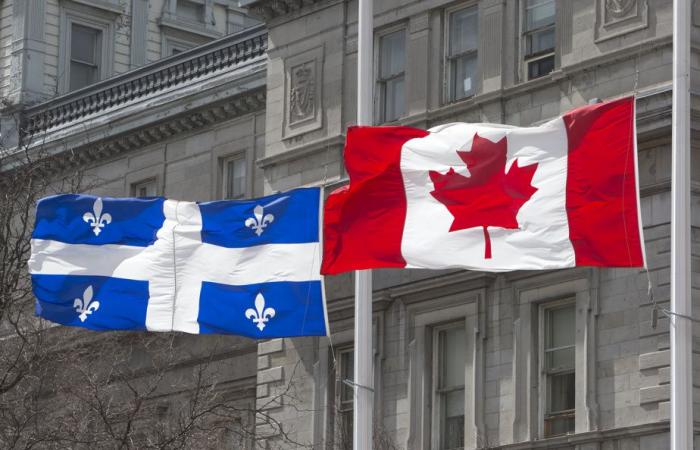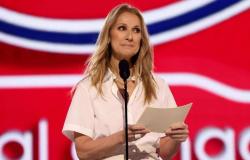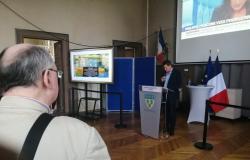From one holiday to the next, the end of June offers us the opportunity to reflect, one after the other, on our Quebecness and our relationship with Canada. From June 24 to June 1istwo collective rituals follow one another. In public as in private, in complementarity or in conflict, everyone finds something there to feed their own identity ambivalence.
Published at 1:40 a.m.
Updated at 6:00 a.m.
Patrick Taillon
Professor at the Faculty of Law of Laval University
If each individual experiences this “public holiday federalism” in a very personal way, our governments seem more than ever to converge towards unilateralism.
Federal and federated entities, supposed to behave as partners, are increasingly taking refuge in unilateral action. Each government does as it pleases – without regard to the repercussions of its actions on the other partners of the federation. The more time passes, the more Canada today resembles a federation without a hyphen.
Few outstretched hands
Unilateralism is first imposed in Ottawa. On the menu of the last budget: construction of social housing, creation of daycare spaces, school food program, even Hydro-Québec is now subject to a new obligation to report annually on the impact of a federal tax credit on its activities. Within the Trudeau government, the indifference or distrust toward the provinces is such that they prefer to use an insurance company, Canada Life, to privatize the management of the dental care program rather than cooperate with the provincial governments, which, however, already have the operational know-how required in these matters.

PHOTO CHRISTINNE MUSCHI, CANADIAN PRESS ARCHIVES
The leader of the Conservative Party, Pierre Poilievre, last week in Montreal
The government-in-waiting represented by the official opposition offers little more prospect of dialogue. The Conservative Party of Canada is preparing to be elected without the slightest promise or outstretched hand regarding Quebec’s traditional demands.
For Pierre Poilievre, Quebecers are individuals like any other; there is no need to engage in an equal or nation-to-nation dialogue with the elected representatives of the National Assembly.
On the Prairies, unilateralism is at the heart of the strategy deployed by the governments of Danielle Smith, in Alberta, and Scott Moe, in Saskatchewan. These provinces cultivate their autonomy in a spirit of distrust – unprecedented – towards the federal government.
In Alberta, the 2021 equalization referendum and the Sovereignty Act The 2022 bill was recently joined by Bill 18, in which the province is taking inspiration from Quebec to increase its control over agreements concluded by cities, universities and other public bodies with the federal government. The intention to withdraw from the Canada Pension Plan also borrows from Quebec’s Quiet Revolution. Added to this is the resolution suggesting that the province’s electricity suppliers ignore federal regulations on “clean” electricity as much as possible.
PHOTO JASON FRANSON, CANADIAN PRESS ARCHIVES
Alberta Premier Danielle Smith
Saskatchewan is not left out with its Saskatchewan First Act. Since January, in the carbon tax file, a law prohibits the Crown corporation SaskEnergy from paying carbon taxes to the Canada Revenue Agency.
An idea that is gaining ground
In Quebec, the memory of the many failures in multilateral negotiations still influences the CAQ and the Liberals today. The mandate of the Proulx-Rousseau committee on autonomy, which François Legault announced the creation of earlier this month, points towards the use of unilateral solutions. Inspired by the recent changes made to the Constitution Act of 1867 In order to abolish the oath to the king and to establish that Quebec forms a French-speaking nation, the Quebec government seeks to exploit to the maximum the part of constitutional autonomy that it can exercise, without having to seek the agreement of the rest of Canada.
The idea of giving Quebec its own Constitution is gaining more and more support. As the hope of thoroughly renovating the Constitution common to the entire federation slowly fades, the hope of unilaterally codifying the fundamental rules of the Quebec state is gaining ground.
From the Pratte-Cadet report published last fall to the upcoming Proulx-Rousseau report, the Quebec vision of federalism no longer seems to rely on negotiation within this federation.
Quebec sovereignists are also part of this trend towards unilateralism. Neither the Parti Québécois nor Québec solidaire have the slightest thought about the nature of the links and relations to be negotiated with the rest of Canada in the aftermath of a possible referendum. Partnership or association have been eclipsed for many years…
“Cohabitation” without enthusiasm
Faced with the failure of cooperative federalism and the decline of associative sovereignty, unilateralism triumphs. It is not Justin Trudeau’s communitarian clientelism or Pierre Poilievre’s libertarian hyper-individualism that will reverse this dynamic. Not everyone can be Brian Mulroney!
Without any real reflection on the nature of this union or on the political communities it seeks to unite, the Canadian federation is increasingly taking on the appearance of a “cohabitation”, without enthusiasm, where each level of government deploys its policy, without real cooperation with the others.
Certainly, this inability to think politically about Quebec-Canada relations will not prevent each of us from experiencing, in our own way, this “federalism of public holidays” which, each year, punctuates the end of classes, moves and, more generally , the start of summer!
But in Canada, as everywhere else, unresolved problems tend to get worse. If unilateralism is essential to shake up a static federalism, in the longer term, Quebec cannot ignore genuine dialogue and negotiations with its neighbours and partners in Canada.
What do you think? Join the dialogue








